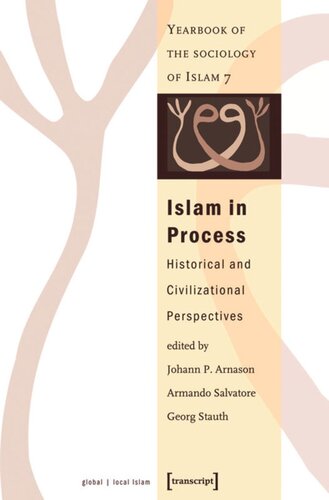

Most ebook files are in PDF format, so you can easily read them using various software such as Foxit Reader or directly on the Google Chrome browser.
Some ebook files are released by publishers in other formats such as .awz, .mobi, .epub, .fb2, etc. You may need to install specific software to read these formats on mobile/PC, such as Calibre.
Please read the tutorial at this link: https://ebookbell.com/faq
We offer FREE conversion to the popular formats you request; however, this may take some time. Therefore, right after payment, please email us, and we will try to provide the service as quickly as possible.
For some exceptional file formats or broken links (if any), please refrain from opening any disputes. Instead, email us first, and we will try to assist within a maximum of 6 hours.
EbookBell Team

4.8
44 reviewsThe articles included in this Yearbook of the Sociology of Islam are focused on two perspectives: Some link the comparative analysis of Islam to ongoing debates on the Axial Age and its role in the formation of major civilizational complexes, while others are more concerned with the historical constellations and sources involved in the formation of Islam as a religion and a civilization.
More than any other particular line of inquiry, new historical and sociological approaches to the Axial Age revived the idea of comparative civilizational analysis and channeled it into more specific projects. A closer look at the very problematic place of Islam in this context will help to clarify questions about the Axial version of civilizational theory as well as issues in Islamic studies and sociological approaches to modern Islam. Contributors among others: Said Arjomand, Shmuel N. Eisenstadt, Josef van Ess and Raif G. Khoury.